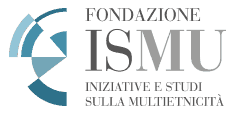
Project “AwArtMali – Awareness raising and info through art on irregular migration risks in Mali”
25 June 2020
Radicalization process and Jihadism
29 June 2020
Project “AwArtMali – Awareness raising and info through art on irregular migration risks in Mali”
25 June 2020
Radicalization process and Jihadism
29 June 2020Smuggling of migrants, trafficking and criminal groups –
Simona Ragazzi
The migration crisis as a test for the EU and UN on tackling the Organised Crime – Simona Ragazzi
The recommendations from researchers and practitioners on communicating effectively on migration – Hind Sharif
News
The results of the “Research Social Platform on Migration and Asylum” project (ReSOMA), coordinated by ISMU, are now available on CORDIS
The project, funded under the Horizon2020 programme (January 2018 – March 2020), contributed to developing evidence-based migration and integration policies at EU level. The CORDIS website, which collects practices financed by the European Union, has published an article summarising the results achieved in two years
Between 2018 and 2020 ReSOMA created a community that now counts more than 1200 migration and integration experts including researchers, policymakers and stakeholders. Two annual rounds of consultations involved the expert community and led to 80 publications which examined the implications of European decisions on national and local policies and practice, while offering recommendations.
ISMU coordinated the project and, in particular, a unique partnership of civil society actors, local authorities, think tanks and European research bodies.
The impact of the project will be sustained over time thanks to the integration of ReSOMA into IMISCOE, the largest European network of asylum, integration and migration researchers.
Funded under the Horizon2020 programme, the ReSOMA projectaims at creating a platform for exchanging knowledge and practice in order to ensure that European policy-makers and stakeholders access accurate and reliable policy evidence. More specifically, the project has three main objectives:
1) Supporting a sustainable and mutually beneficial collaboration between EU research and stakeholder networks;
2) Making EU’s platforms for policy dialogue and consultation more evidence-based;
3) Raising new evidence-based top priorities for the EU’s policy agenda.
The partnership includes: ISMU Foundation (project coordinator), Ernst&Young, Migration Policy Group, Erasmus University Rotterdam, PICUM, EuroCities, Social Platform, ECRE and CEPS.
The project will last 2 years and, among other things, will feature meetings where stakeholders, researchers and policy-makers will engage in a dialogue in order to produce evidence-based policy recommendations on asylum, migration and integration.
Duration: 1st February 2018-31st January 2020
Details of the project
ReSOMA Project – Research Social platform On Migration and Asylum
In the midst worst refugee crisis on a global scale since the Second World War with large-scale mixed migration flows, EU policymaking on asylum and migration has understandably not been able to keep up with the rapidly changing migration dynamics and political dynamics in the Member States. Policies towards immigrants are generally slow to change and path dependent, except when major changes in flows, government or politicisation radically accelerate the pace of changes in policy and public opinion. Migration has never been so high on the political agenda, while at EU level coordination involves an increasing number of relatively new actors, agencies and fora becoming active on asylum and migration policy.
Building on these challenges, the ReSOMA project has three main objectives:
Objective #1: Support a Sustainable and mutually beneficial collaboration between EU research and stakeholder networks. The need for collaboration between EU migration stakeholders and researchers has not been addressed systematically, despite the ongoing interest in this from researchers, stakeholders and the European Commission. Researchers and stakeholders need each other to provide the best evidence and arguments to inform evidence-based policymaking. Stakeholders and policymakers need researchers to provide them with missing perspective, knowledge, evidence, methods and robust recommendations. ReSOMA will therefore support sustainable and mutually beneficial relationships for researchers and stakeho plders to consult and work more regularly with each other to inform EU public debates.
Objective #2: Make EU’s platforms for policy dialogue and consultation more evidence-based. The need is greater than ever for high-quality and diverse expertise and evidence to inform EU policymaking on migration. Their policies must respond to migration drivers, their consequences and the rapidly changing situation on the ground, while also respecting equality, fundamental rights, the rule of law and other principles underpinning EU law. To gather this evidence, EU institutions and agencies have made significant investments in evidence- gathering tools and platforms for policy dialogue and consultation. The second objective of ReSOMA thus is to make the EU’s platforms for policy dialogue and consultation.
Objective #3: Raise new evidence-based top priorities for the EU’s policy agenda. Major unmet needs on the ground do not always make their way up onto the agenda of EU migration policymakers. Proactive and bottom-up agenda-setting will be necessary to address long-standing and complex issues facing EU migration policy in order to avoid future migration governance crises. Responding to migration drivers and flows often requires complex and long-term processes, while the consequences of migration are slow to reveal themselves over time. Researchers and stakeholders must find the right arguments and allies that will help them find consensus and agreement. The third objective of ReSOMA, therefore, is to put a few new priorities on the EU policy agenda on asylum, migration and integration based on the collective evidence of researchers and stakeholders in the Member States.

This project has received funding from the European Union’s Horizon 2020 research and innovation program under the grant agreement 770730.



